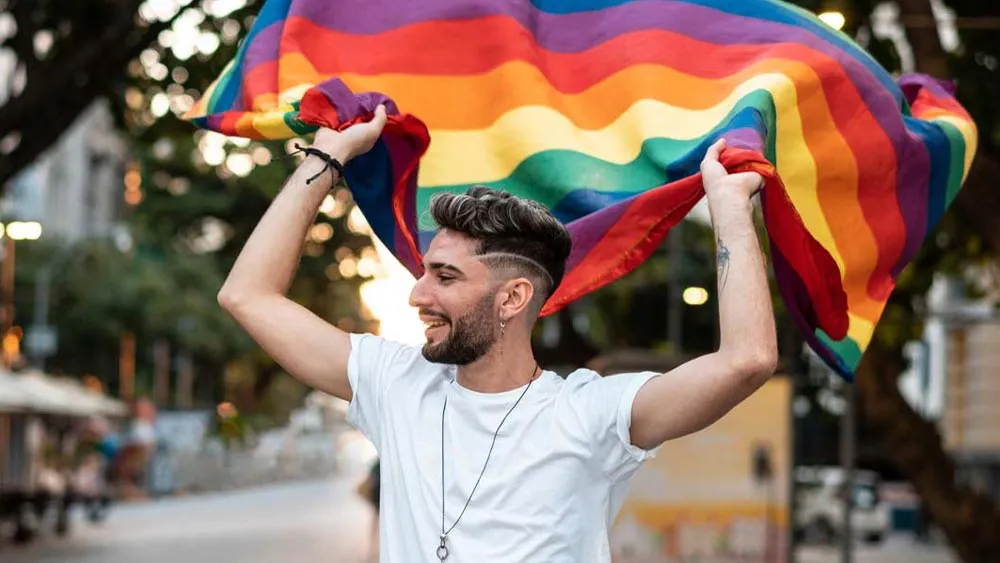November 6, 2011
Penn. State Coach Arrested for Molesting Boys at Charity; Two College Officials Indicted for Perjury for Alleged Cover-Up
Steve Weinstein READ TIME: 6 MIN.
An explosive sex abuse scandal and allegations of a cover-up rocked Happy Valley, the central Pennsylvania town that is home to Penn State University. Former Penn State defensive coordinator Jerry Sandusky, once considered Joe Paterno's heir apparent, was charged with sexually assaulting eight boys over 15 years. Among the allegations was that a graduate assistant saw Sandusky assault a boy in the shower at the team's practice center in 2002.
Sandusky retired in 1999 but continued to use the school's facilities for his work with The Second Mile, a foundation he established to help at-risk kids, where authorities say he encountered the boys. The grand jury investigation also resulted in perjury charges against Tim Curley, Penn State's athletic director, and Gary Schultz, vice president for finance and business. They were accused of failing to alert police as required by state law of their investigation of the allegations.
"This is a case about a sexual predator who used his position within the university and community to repeatedly prey on young boys," state Attorney General Linda Kelly said Saturday in a statement.
Paterno, who last week became the coach with the most wins in Division I football history, wasn't charged, and the grand jury report didn't appear to implicate him in wrongdoing.
Under Paterno's four-decades-and-counting stewardship, the Nittany Lions became a bedrock in the college game, and fans packed the stadium in State College, a campus town routinely ranked among America's best places to live and nicknamed Happy Valley. Paterno's teams were revered both for winning games - including two national championships - and largely steering clear of trouble. Sandusky, whose defenses were usually anchored by tough-guy linebackers - hence the moniker "Linebacker U" - spent three decades at the school. The charges against him cover the period from 1994 to 2009.
Sandusky, 67, was arrested Saturday and released on $100,000 bail after being arraigned on 40 criminal counts. Curley, 57, and Schultz, 62, were expected to turn themselves in on Monday in Harrisburg.
The allegations against Sandusky, who started The Second Mile in 1977, range from sexual advances to touching to oral and anal sex. The young men testified before a state grand jury that they were in their early teens when some of the abuse occurred; there is evidence even younger children may have been victimized. Sandusky's attorney Joe Amendola said his client has been aware of the accusations for about three years and has maintained his innocence.
"He's shaky, as you can expect," Amendola told WJAC-TV after Sandusky was arraigned. "Being 67 years old, never having faced criminal charges in his life and having the distinguished career that he's had, these are very serious allegations."
A preliminary hearing scheduled for Wednesday would likely be delayed, Amendola said. Sandusky is charged with multiple counts of involuntary deviate sexual intercourse, corruption of minors, endangering the welfare of a child, indecent assault and unlawful contact with a minor, as well as single counts of aggravated indecent assault and attempted indecent assault.
No one answered a knock at the door Saturday at Sandusky's modest, two-story brick home at the end of a dead-end road in State College. A man who answered the door at The Second Mile office in State College declined to give his name and said the organization had no comment.
The grand jury said eight boys were targets of sexual advances or assaults by Sandusky. None was named, and in at least one case, the jury said the child's identity remains unknown to authorities.
One accuser, now 27, testified that Sandusky initiated contact with a "soap battle" in the shower that led to multiple instances of involuntary sexual intercourse and indecent assault at Sandusky's hands, the grand jury report said.
He said he traveled to charity functions and Penn State games with Sandusky, even being listed as a member of the Sandusky family party for the 1998 Outback Bowl and 1999 Alamo Bowl. But when the boy resisted his advances, Sandusky threatened to send him home from the Alamo Bowl, the report said.
Sandusky also gave him clothes, shoes, a snowboard, golf clubs, hockey gear and football jerseys, and even guaranteed that he could walk on to the football team, the grand jury said, and the boy also appeared with Sandusky in a photo in Sports Illustrated. He testified that Sandusky once gave him $50 to buy marijuana, drove him to purchase it and then drove him home as the boy smoked the drug.
The first case to come to light was a boy who met Sandusky when he was 11 or 12, the grand jury said. The boy received expensive gifts and trips to sports events from Sandusky, and physical contact began during his overnight stays at Sandusky's home, jurors said. Eventually, the boy's mother reported the allegations of sexual assault to his high school, and Sandusky was banned from the child's school district in Clinton County in 2009. That triggered the state investigation that culminated in charges Saturday.
But the report also alleges much earlier instances of abuse and details failed efforts to stop it by some who became aware of what was happening.
Another child, known only as a boy about 11 to 13, was seen by a janitor pinned against a wall while Sandusky performed oral sex on him in fall 2000, the grand jury said.
And in 2002, Kelly said, a graduate assistant saw Sandusky sexually assault a naked boy, estimated to be about 10 years old, in a team locker room shower. The grad student and his father reported what he saw to Paterno, who immediately told Curley, prosecutors said.
Curley and Schultz met with the graduate assistant about a week and a half later, Kelly said.
"Despite a powerful eyewitness statement about the sexual assault of a child, this incident was not reported to any law enforcement or child protective agency, as required by Pennsylvania law," Kelly said.
There's no indication that anyone at school attempted to find the boy or follow up with the witness, she said.
Curley denied that the assistant had reported anything of a sexual nature, calling it "merely 'horsing around,'" the 23-page grand jury report said. But he also testified that he barred Sandusky from bringing children onto campus and that he advised Penn State President Graham Spanier of the matter.
The grand jury said Curley was lying, Kelly said, adding that it also deemed portions of Schultz's testimony not to be credible.
Schultz told the jurors he also knew of a 1998 investigation involving sexually inappropriate behavior by Sandusky with a boy in the showers the football team used.
But despite his job overseeing campus police, he never reported the 2002 allegations to any authorities, "never sought or received a police report on the 1998 incident and never attempted to learn the identity of the child in the shower in 2002," the jurors wrote. "No one from the university did so."
Lawyers for both Curley and Schultz issued statements saying they are innocent of all charges.
In response to a request for comment from Paterno, a spokesman for the athletic department said all such questions would be referred to university representatives, who released a statement from Spanier calling the allegations against Sandusky "troubling" and adding that Curley and Schultz had his unconditional support.
He predicted they will be exonerated.
"I have known and worked daily with Tim and Gary for more than 16 years," Spanier said. "I have complete confidence in how they handled the allegations about a former university employee."
Sandusky, once considered a potential successor to Paterno, drew up the defenses for the Nittany Lions' national-title teams in 1982 and 1986. The team is enjoying another successful run this season; at 8-1, Penn State is ranked No. 16 in the AP Top 25 and is the last undefeated squad in Big Ten play. The Nittany Lions were off Saturday.
As the head football coach, Paterno has spent years cultivating a reputation for putting integrity ahead of modern college-sports economics. It's a notion that has benefited Penn State's marketing and recruiting efforts over the decades and one that the Big Ten school's alumni proudly tout years after they leave.
"We're supposed to be one of the universities to follow after, someone to look up to," said sophomore Brian Prewitt of Poughkeepsie, N.Y. "Now that people on the top are involved, it's going to be bad."
Steve Weinstein has been a regular correspondent for the International Herald Tribune, the Advocate, the Village Voice and Out. He has been covering the AIDS crisis since the early '80s, when he began his career. He is the author of "The Q Guide to Fire Island" (Alyson, 2007).





